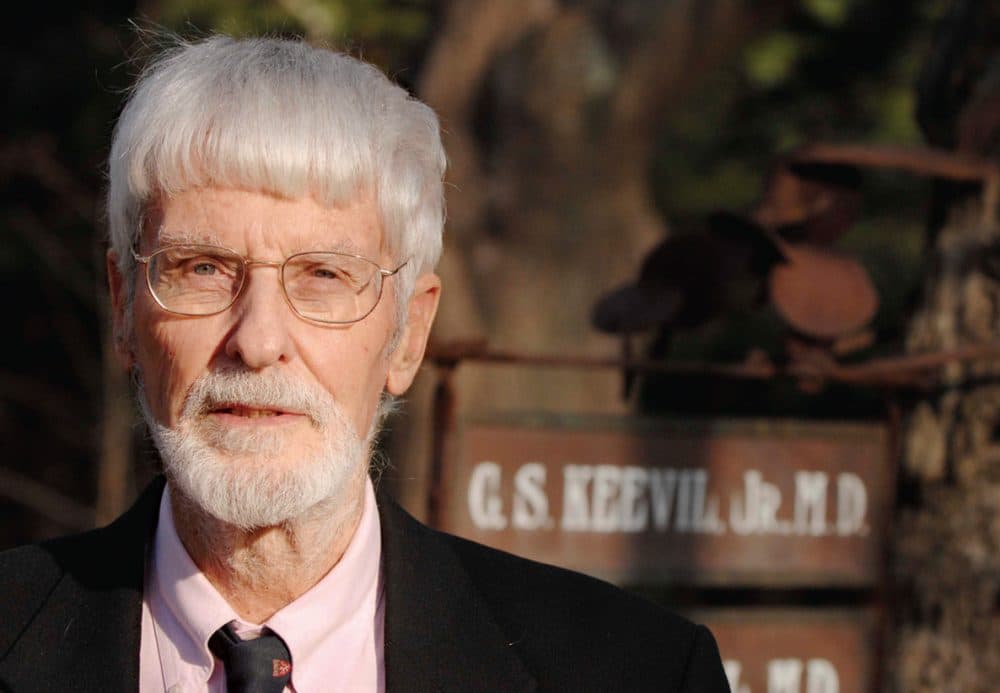Advertisement
The Remembrance Project: Dr. Charles Keevil

Dr. Charles Keevil died April 8, 2014, in Lincoln, Massachusetts. He was 88 years old, worked for 54 years in the same hospital, and, with his wife, had 10 children. During summer vacations, they packed various family configurations into a VW bus and drove to a coal-mining district of Appalachian Kentucky, where he volunteered in a hospital that had never seen a cardiologist.
Dr. Keevil was an easy man to idealize — so doctorly he diagnosed the metastases on his own brain scan, and nurses attending him when he was dying asked his permission to take his vital signs. He had faith in the formality of the white coat. But he also knew that half of what medical students learn becomes obsolete, and no one can predict which half that is.
Both nature and history drew him to medicine. As an only child, he crawled under his musician mother's piano while she played. When he was 12, she suddenly fell dead. He zigzagged at first into biochemistry; he and his wife were living on a monthly stipend of $166.67 in graduate school — when, in the middle of a Boston Symphony Orchestra rehearsal, he realized he needed to go to medical school. He wanted to find answers to his mother's death.
He worked 80-hour weeks, made house calls, and was an excellent sleeper. After his wife decided to attend graduate school herself, he spent some of his weekends vacuuming and washing bathrooms in their child-heavy house.
He married only once. On the first date, in a show of masculine color, he ordered black coffee. He did not like his coffee black. But through their 63 years together, he and his wife drank lightened coffee at 5:15 every morning, before the crush of the day began.
Dr. Keevil was cared for at home while he was dying. Accustomed to being the giver, he became the receiver, and accepted an unfamiliar role with grace and gratitude. His wife wears her wedding ring on one hand now, and his on the other.
Did you know Dr. Charles Keevil? Share your memories in the comments section.